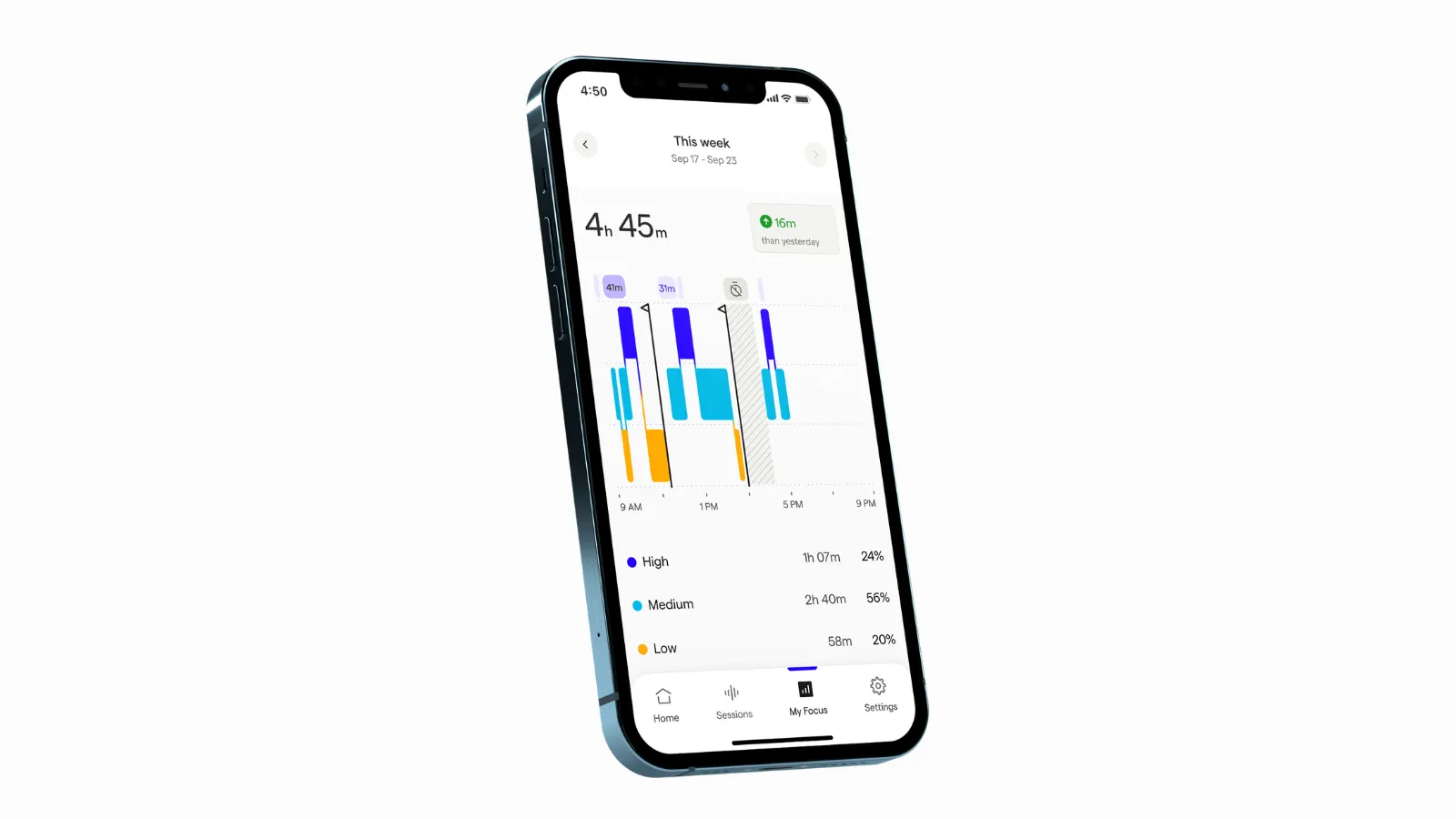Would you put on a $700 pair of headphones if it meant you possibly can monitor your mind exercise and assist you focus higher?
A Boston-based startup referred to as Neurable hopes you’ll—and it’s aiming to make wearable electroencephalography (EEG) units extra correct, responsive, and trendy with in the present day’s launch of the MW75 Neuro headphones.
The brain-reading headphones acquire real-time mind information by a collection of EEG sensors—coupled, in fact, with synthetic intelligence—and transmit the information to an Android or iOS app. Wearers can then see the data on a live-time dashboard and modify their conduct to remain centered and stave off fatigue and burnout.
“It is basically educating you easy methods to focus and get higher at understanding how that feels so to enhance it over lengthy durations of time,” Neurable co-founder and CEO Dr. Ramses Alcaide advised Decrypt.
Launched in 2015, Neurable constructed its sensory gadget in collaboration with wi-fi headphone developer Grasp & Dynamic and researchers on the College of Michigan.
“We spent near a decade refining the know-how, going from giant head caps, working our manner all the way down to smaller type components, basically now attending to headphones, all of the whereas attempting to retain a excessive degree of sign high quality,” Alcaide mentioned.
Along with EEG sensors, the MW75 options high-end headphones that include adaptive noise cancellation, six microphones for clear calls, Bluetooth, and a battery lifetime of 10 hours.

Neurable is the most recent entry in a burgeoning shopper electronics class that features InteraXon, creator of the Muse EEG headband, and Synchron, creator of the insertable Stentrode implant. There’s additionally the yet-to-be-launched NextSense, designed to make use of EEG information to enhance customers’ sleep.
EEG is often utilized in medical and analysis settings, notably for diagnosing circumstances like epilepsy, sleep problems, or mind accidents. One other use case for EEG know-how is in brain-computer interfaces, the place researchers use EEG to permit individuals to regulate units with their mind exercise.
Stanford College neuroscientist Dr. Walter Greenleaf mentioned that there doesn’t look like any threat with units that measure EEG. “It is an unobtrusive and passive manner of accumulating data,” he advised Decrypt. “So the one threat could be if the data was mis-scored or mischaracterized.”

Whereas he applauded the work Neurable and different consumer-facing EEG builders are doing, he cautioned them to not overstate their capabilities. “If any of those firms had been making exaggerated claims like they treatment autism by utilizing their gadget, then that will be a hazard, however as a tool, per se, they’re protected, they usually’re helpful.”
With an increasing number of firms placing EEG units in the marketplace, Greenleaf mentioned how correct one gadget is over one other is determined by the wants of the wearer.
“Should you’re attempting to establish a focus for an epileptic seizure, then it is advisable have the entire head measured,” Greenleaf mentioned. “Should you’re attempting simply to know if somebody is targeted their consideration or whether or not they’re in a relaxed temper, perhaps information them to a extra relaxed temper or whether or not somebody’s asleep and what stage of sleep they’re in, then you do not want that complete harness of electrodes.”
Whereas the record of opponents continues to develop, Alcaide mentioned the main target must be on serving to individuals enhance their psychological well being.
His new product “is for the on a regular basis individual,” he mentioned. “You wish to get into deep focus mode. You wish to be advised to take a break with the intention to forestall burnout as a result of most individuals take a break when their physique is drained, not when their mind is drained.”
The underside line, he mentioned, is “you wish to leverage brain-computer interface capabilities that may assist different features of your life to know your self higher.”
Edited by Josh Quittner and Sebastian Sinclair
Typically Clever E-newsletter
A weekly AI journey narrated by Gen, a generative AI mannequin.




















